An ansible is a category of fictional devices or technology capable of near-instantaneous or faster-than-light communication. It can send and receive messages to and from a corresponding device over any distance or obstacle whatsoever with no delay, even between star systems. As a name for such a device, the word "ansible" first appeared in a 1966 novel by Ursula K. Le Guin. Since that time, the term has been broadly used in the works of numerous science fiction authors, across a variety of settings and continuities.

Franklin Patrick "Frank" Herbert Jr. was an American science fiction author best known for the 1965 novel Dune and its five sequels. Though he became famous for his novels, he also wrote short stories and worked as a newspaper journalist, photographer, book reviewer, ecological consultant, and lecturer.
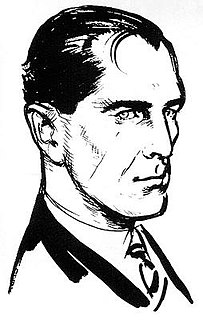
The James Bond series focuses on a fictional British Secret Service agent created in 1953 by writer Ian Fleming, who featured him in twelve novels and two short-story collections. Since Fleming's death in 1964, eight other authors have written authorised Bond novels or novelisations: Kingsley Amis, Christopher Wood, John Gardner, Raymond Benson, Sebastian Faulks, Jeffery Deaver, William Boyd, and Anthony Horowitz. The latest novel is Forever and a Day by Anthony Horowitz, published in May 2018. Additionally Charlie Higson wrote a series on a young James Bond, and Kate Westbrook wrote three novels based on the diaries of a recurring series character, Moneypenny.
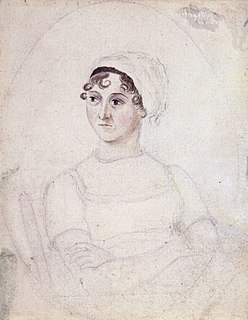
Jane Austen was an English novelist known primarily for her six major novels, which interpret, critique, and comment upon the British landed gentry at the end of the 18th century. Austen's plots often explore the dependence of women on marriage in the pursuit of favourable social standing and economic security. Her works critique the novels of sensibility of the second half of the 18th century and are part of the transition to 19th-century literary realism. Her use of biting irony, along with her realism and social commentary, have earned her acclaim among critics and scholars.

Richard Burton Matheson was an American author and screenwriter, primarily in the fantasy, horror, and science fiction genres.

Roger Joseph Zelazny was an American poet and writer of fantasy and science fiction short stories and novels, best known for The Chronicles of Amber. He won the Nebula Award three times and the Hugo Award six times, including two Hugos for novels: the serialized novel ...And Call Me Conrad (1965), subsequently published under the title This Immortal (1966) and then the novel Lord of Light (1967).

Murray Leinster was a pen name of William Fitzgerald Jenkins, an American writer of genre fiction, particularly of science fiction. He wrote and published more than 1,500 short stories and articles, 14 movie scripts, and hundreds of radio scripts and television plays.

The Moon Is a Harsh Mistress is a 1966 science fiction novel by American writer Robert A. Heinlein about a lunar colony's revolt against absentee rule from Earth. The novel illustrates and discusses libertarian ideals. It is respected for its credible presentation of a comprehensively imagined future human society on both the Earth and the Moon.

Ian Lancaster Fleming was a British writer, journalist and naval intelligence officer who is best known for his postwar James Bond series of spy novels. Fleming came from a wealthy family connected to the merchant bank Robert Fleming & Co., and his father was the Member of Parliament (MP) for Henley from 1910 until his death on the Western Front in 1917. Educated at Eton, Sandhurst, and, briefly, the universities of Munich and Geneva, Fleming moved through several jobs before he started writing.

Henry Graham Greene was an English writer and journalist regarded by many as one of the leading English novelists of the 20th century. Combining literary acclaim with widespread popularity, Greene acquired a reputation early in his lifetime as a major writer, both of serious Catholic novels, and of thrillers. He was shortlisted, in 1966 and 1967, for the Nobel Prize for Literature. Through 67 years of writing, which included over 25 novels, he explored the conflicting moral and political issues of the modern world. He was awarded the 1968 Shakespeare Prize and the 1981 Jerusalem Prize.
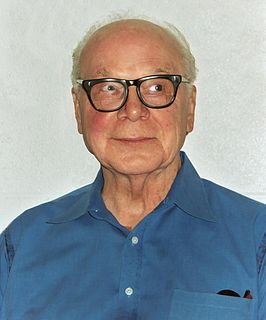
Philip José Farmer was an American author known for his science fiction and fantasy novels and short stories.
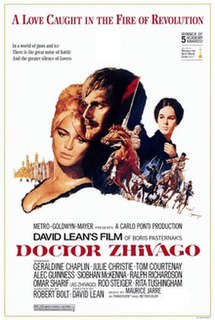
Doctor Zhivago is a 1965 epic historical romance film directed by David Lean with a screenplay by Robert Bolt, based on the 1957 novel by Boris Pasternak. The story is set in Russia during World War I and the Russian Civil War. The film stars Omar Sharif in the title role as Yuri Zhivago, a married physician and poet whose life is altered by the Russian Revolution and subsequent civil war, and Julie Christie as his love interest Lara Antipova. Geraldine Chaplin, Tom Courtenay, Rod Steiger, Alec Guinness, Ralph Richardson, Siobhán McKenna, and Rita Tushingham play supporting roles.
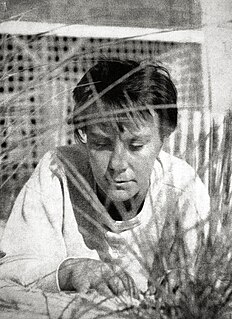
Nelle Harper Lee was an American novelist best known for her 1960 novel To Kill a Mockingbird. It won the 1961 Pulitzer Prize and has become a classic of modern American literature. Lee has received numerous accolades and honorary degrees, including the Presidential Medal of Freedom in 2007 which was awarded for her contribution to literature. She assisted her close friend Truman Capote in his research for the book In Cold Blood (1966). Capote was the basis for the character Dill Harris in To Kill a Mockingbird.

In Cold Blood is a non-fiction novel by American author Truman Capote, first published in 1966. It details the 1959 murders of four members of the Clutter family in the small farming community of Holcomb, Kansas.

John Keith Laumer was an American science fiction author. Prior to becoming a full-time writer, he was an officer in the United States Air Force and a diplomat in the United States Foreign Service. His older brother March Laumer was also a writer, known for his adult reinterpretations of the Land of Oz. Frank Laumer, their youngest brother, is a historian and writer.
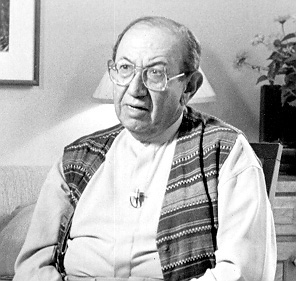
Daniel Keyes was an American writer who wrote the novel Flowers for Algernon. Keyes was given the Author Emeritus honor by the Science Fiction and Fantasy Writers of America in 2000.

Conrad Michael Richter was an American novelist whose lyrical work is concerned largely with life on the American frontier in various periods. His novel The Town (1950), the last story of his trilogy The Awakening Land about the Ohio frontier, won the 1951 Pulitzer Prize for Fiction. His novel The Waters of Kronos won the 1961 National Book Award for Fiction. Two collections of short stories were published posthumously during the 20th century, and several of his novels have been reissued during the 21st century by academic presses.

Fantastic Voyage is a 1966 American science fiction adventure film directed by Richard Fleischer and written by Harry Kleiner, based on a story by Otto Klement and Jerome Bixby. The film is about a submarine crew who are shrunk to microscopic size and venture into the body of an injured scientist to repair damage to his brain. Kleiner abandoned all but the concept of miniaturization and added a Cold War element. The film starred Stephen Boyd, Raquel Welch, Edmond O'Brien, Donald Pleasence, and Arthur Kennedy.
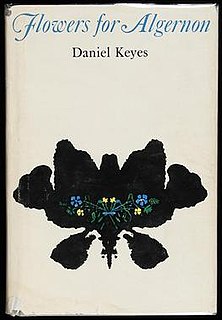
Flowers for Algernon is a short story by American author Daniel Keyes, later expanded by him into a novel and subsequently adapted for film and other media. The short story, written in 1958 and first published in the April 1959 issue of The Magazine of Fantasy & Science Fiction, won the Hugo Award for Best Short Story in 1960. The novel was published in 1966 and was joint winner of that year's Nebula Award for Best Novel.

Kizhakkepainummoodu Easo Mathai, better known by his pen name Parappurath (1924–1981), was an Indian novelist, short story writer and screenwriter who wrote in the Malayalam language. His body of work comprises 20 novels, 14 short story anthologies and 15 screenplays. He was a recipient of the Kerala Sahitya Akademi Award for Story (1966), Kerala Sahitya Akademi Award for Novel (1968) and Kerala State Film Award for Best Story, amongst other honours.



















